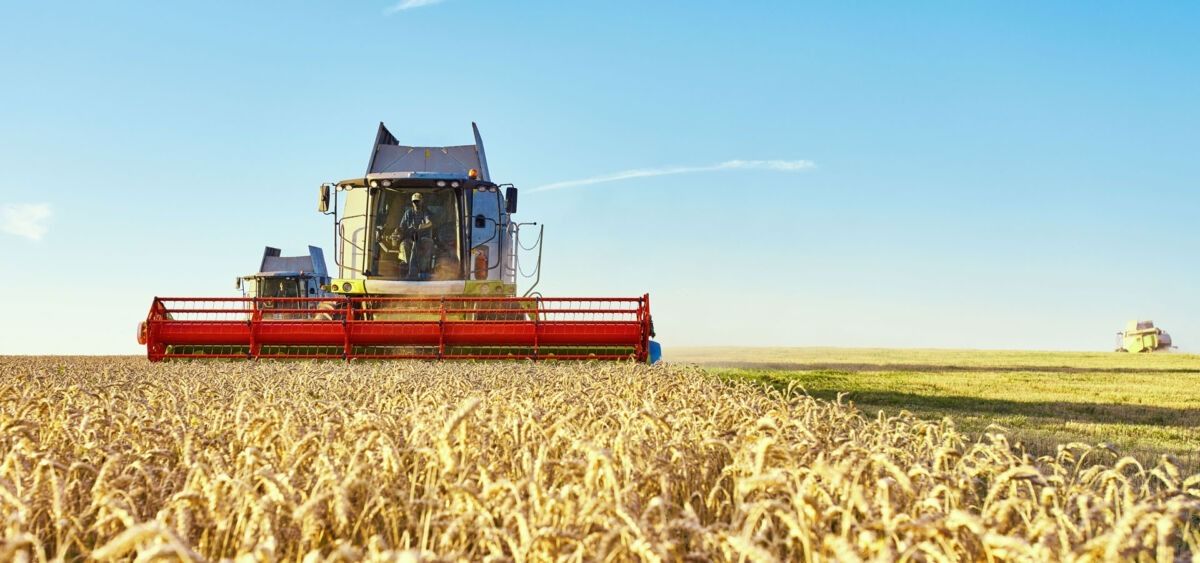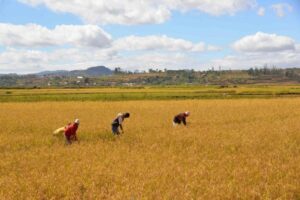
In recent years, Argentina’s agro-industrial sector, one of the most prosperous in the world, has attracted the attention of foreign investors eager to tap into the country’s vast agricultural potential. This increase in the flow of international capital has triggered a series of changes that have reshaped the agro-industrial landscape, with profound implications for technology, production and possible socio-political tensions.
The presence of foreign investment in Argentina not only redefines traditional agricultural practices but also raises questions about the sustainability, equity and long-term development of the agro-industrial sector.
Technological advances: transformation in Argentine agriculture
The agri-food sector is a pillar of the Argentine economy, contributing significantly to GDP and generating employment for a large part of the population. Foreign investment has played a crucial role in the technological modernization of the sector. International investors, equipped with cutting-edge techniques and machinery, have introduced innovations that have the potential to transform traditional agricultural practices.
The adoption of advanced technologies such as automated machinery and data-driven decision-making systems has improved the efficiency and productivity of Argentine agriculture. For example, the use of data analytics, satellite imagery, and sensors allows farmers to optimize resource use, increasing yield and reducing waste, which in turn promotes more sustainable agriculture. Automation allows agricultural tasks to be carried out with greater precision and less margin for error, which is essential to maximize efficiency in the use of inputs such as water, fertilizers, and pesticides.
Technology has also enabled more sustainable farming practices. The implementation of smart irrigation systems and the use of drones to monitor crops help reduce water consumption and improve plant health. Additionally, precision agriculture allows for the localized application of inputs, reducing environmental impact and improving long-term sustainability. These advancements not only increase productivity but also help farmers adapt to the challenges of climate change, ensuring the viability of agriculture in the future.
Labor impact: automation and small farmers
These technological advances, however, present challenges for local smallholder farmers. It is essential that mechanisms exist to ensure that the benefits of these innovations are accessible to all actors in the agro-industrial sector, regardless of their scale. Including smallholder farmers in this technological revolution can improve their production processes, raise the quality of their crops and increase their incomes, thus fostering a more inclusive and sustainable industry.
The adoption of technologies by smallholder farmers can be facilitated through training programmes and accessible financing. Agricultural cooperatives and associations can play a crucial role in disseminating technology and knowledge among smallholder farmers. In this way, the industry is improved in all its aspects and agricultural productivity experiences sustainable growth. In addition, the social and economic inclusion of smallholder farmers is fostered, who, by having access to these technologies, can optimize their production processes, improve the quality of their crops and, ultimately, increase their income.
Collaboration between local research institutions and foreign investors could also drive significant advances in crop science, pest management and sustainable practices, positioning Argentina as a global leader in agrotechnology. The transfer of knowledge and technology not only benefits local farmers, but also strengthens the country’s innovation capacity. Strategic alliances with research centers and universities can facilitate the development of new solutions tailored to the specific conditions of Argentine agriculture.
Expansion of production and economic growth
Foreign investment has facilitated the expansion of agricultural production in Argentina, with an increase in investment in land, infrastructure and productive capacity. This has resulted in a considerable increase in overall agricultural production, opening up new opportunities for export and economic growth.
Large commercial farms, with the financial backing of foreign investors, can embark on ambitious expansion projects. This could involve acquiring additional land, installing advanced irrigation systems and establishing more efficient supply chains. These infrastructure investments not only increase production, but also improve the competitiveness of the Argentine agricultural sector in the global market.
The broader economic implications of such expansion include job creation, rural development, and overall economic prosperity for the nation. Investment in rural infrastructure, such as roads, storage facilities, and processing centers, can significantly improve the quality of life in rural communities. In addition, increased agricultural production can generate employment in related areas, such as transportation, logistics, and marketing of agricultural products.
However, it is crucial to balance these benefits with concerns about land ownership and resource distribution. Without adequate mechanisms, the benefits of increased production could be concentrated in large commercial operations, marginalizing small farmers and harming the industry in the long term. Critics warn that an uncontrolled influx of foreign capital could threaten national sovereignty, raising questions about Argentina’s autonomy and control of agricultural resources.
Social dynamics and potential tensions
The presence of foreign investment in Argentine agribusiness also requires an analysis of its impact on the rural social structure. Investments must be evaluated to determine whether they generate equitable benefits or contribute to the concentration of wealth. Equity and sustainability must be guiding principles to ensure that agricultural development benefits all layers of society.
The central question is whether these investments are aligned with sustainable development and social equity, or whether they are exacerbating existing gaps in rural areas. Equity and sustainability must be guiding principles to ensure that agricultural development benefits all layers of society. It is essential to implement policies that promote the fair distribution of economic benefits and support small farmers so that they can compete on a level playing field.
Tensions between small farmers and large operations backed by foreign capital are a concern. Effective dialogue and inclusion mechanisms are essential to avoid the marginalization of local actors and ensure fair and sustainable agricultural development. The dynamics between foreign investments and local actors in Argentine agribusiness also raise questions about the concentration of power and influence on decision-making.
The future of Argentine agribusiness will depend on how these socio-political challenges are managed. Equity, inclusive participation and sustainability must be pillars in the formulation of policies that promote the comprehensive development of the sector, ensuring that its benefits are equitably distributed and contribute to the well-being of all rural communities. Only in this way will it be possible to build a strong, inclusive and sustainable Argentine agribusiness, capable of leading on the global stage.

Grupo Ruiz is a business conglomerate based in the province of Tucumán, Argentina. Founded in 1994 with the creation of Paramérica SA, in a decade it has positioned itself as a world leader in the export of black beans and lemons.
Source: https://reporteasia.com/economia/2024/07/26/influencia-inversion-extranjera-agroindustrial-argentina/

